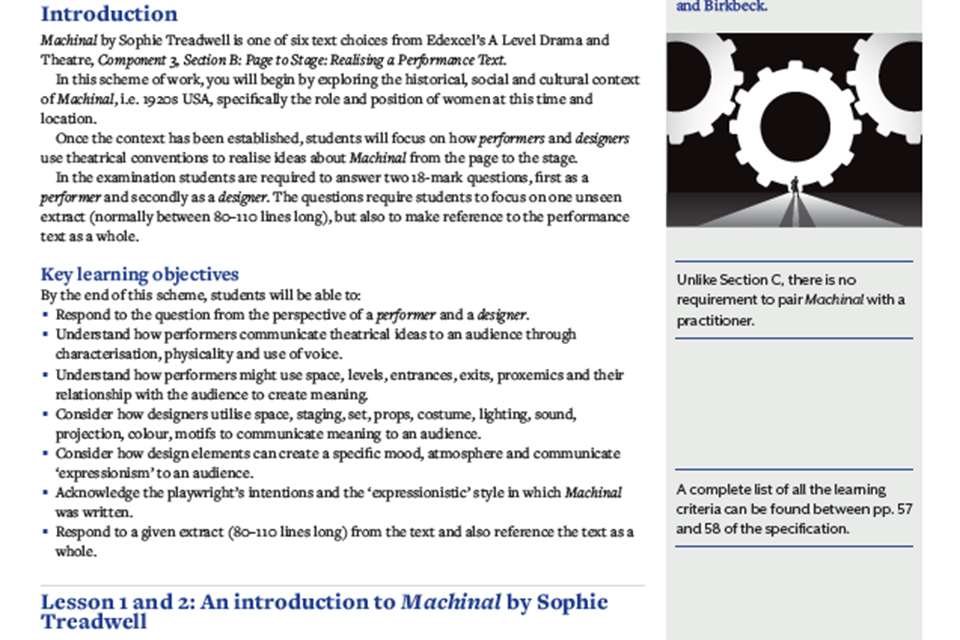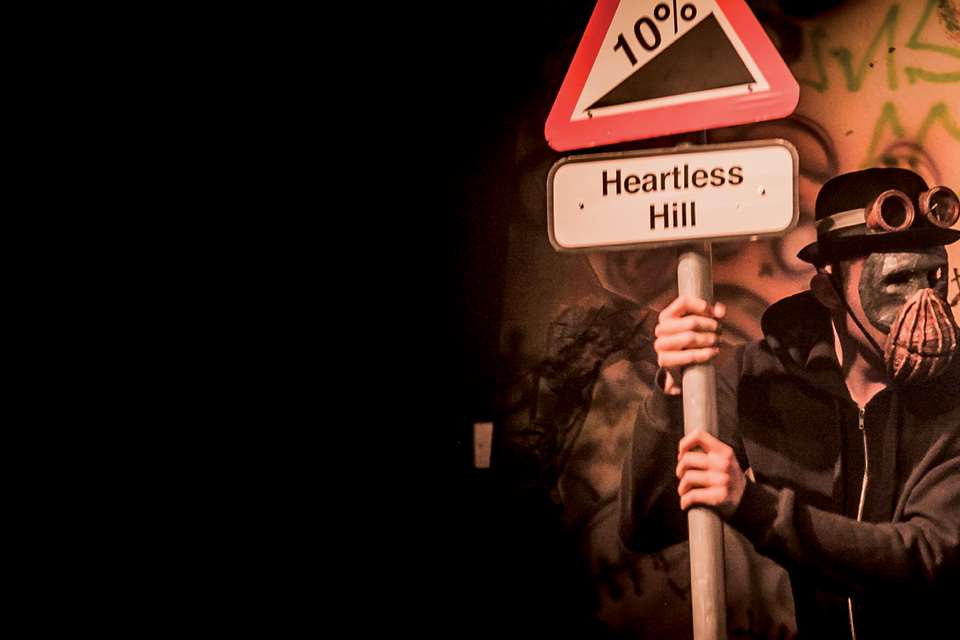At First I Was Afraid (I Was Petrified) by Douglas Maxwell
Douglas Maxwell
Friday, October 1, 2021
Each issue of we bring you a page-to-stage focus on a play for performance with your students. This issue, co-founder of Wonder Fools, Jack Nurse introduces us to At First I Was Afraid (I Was Petrified) – a Douglas Maxwell text written as part of their Positive Stories for Negative Times project

At First I Was Afraid (I Was Petrified) by Douglas Maxwell was written as part of Positive Stories for Negative Times Season 2, an international participatory project by Wonder Fools in association with the Traverse Theatre in which writers have been commissioned to create work for 6–25 year-olds and the rights to perform those works are available free to participating groups. Season 2 is about coming together, embarking on new processes, and changing the way we think about theatre for young people.
Douglas Maxwell has been one of Scotland's top playwrights since his debut in 2000. His first collection of work focussed on his writing for younger audiences including Decky Does a Bronco, Mancub, Too Fast, The Mother Ship and Helmet.
Plot
The play follows Cleo and all of the wonderful characters in her family, friendship group and school. Cleo was a star at primary school, but moving up to high school has been tough. She's lagging behind and split from her friends – they don't even watch Descendants together on a Friday night anymore. As life gets tougher her concerns turn to full-on anxiety. As a way to cope she starts to write down her worries in an old Descendants diary, but everything she writes seems to be coming true – no matter how wild or unbelievable. Could it be that the Worry Book is…magic? Nah, that's daft. And yet… To test it Cleo writes down the biggest, most incredible worry she can think of: ‘I'm worried that the world will just stop.’ That was March 23rd, 2020. The day lockdown began. This is a fast-paced comedy-drama with loads of bright characters, big set pieces, twists and turns and a huge sing-along happy ending…oh, and a mad bit with a Fairy Godperson.
Casting
There are 19 named speaking parts in the play. Many of the smaller parts can be doubled up, so the same actors could play a few roles. For bigger groups, there is a narration that is designed to be read aloud, like a storyteller. However, the narration is also disposable – meaning that if you have a smaller group, you could cut the lines completely and treat them as stage directions. In his script, Douglas offers the idea that instead of reading the stage directions aloud, the storytellers could show them instead. Alternatively, he also says that you could do a wee bit of both, which sounds exciting too and is a great idea for a group of mixed experiences.
It's been written with young people aged 11-14 in mind, but there are several adult parts to be played by any age, so it's not restrictive. As the play has never been staged before there is room for creative license when it comes to staging the show.
Rehearsals
Wonder Fools are about to see groups all over the country direct this play – over 1000 young people are signed up already, and we will also direct one of the plays with our youth board. At Wonder Fools we always do a few things at the start of the creative process: a readthrough, a theme exercise and the four whys.
The readthrough is a chance to get everyone on the same page, literally, and connect with each other. The theme exercise usually follows straight after. We ask groups, ‘what is the play about?’ and draw up a list of answers. This bank of words and phrases are the themes of the play. There are no bad ideas! Then we consult with the group to see if the list can be narrowed down to three or four main themes. These are the central ideas in the play and can become a shorthand for discussing what the play is about.
We then ask ourselves the four whys to discuss as a group the reasons why we are making something. For us, this is super important. It stops us from working inwards and pushes us to think externally – provoking us to interrogate the intention, form, and audience of what we are making.
The four whys are:
- Why this play?
- Why now?
- Why theatre (or the form you have chosen)?
- Why you?
We always galvanise as a group and focus as theatre-makers after doing this exercise, and we hope you do too. You can return to the answers of your four whys if you ever feel like you need to regroup and remind yourself about why you decided to start on your creative journey in the first place.
Douglas' play is rich for exploring – and also ends in a flash mob. What's not to like?
Alongside Douglas Maxwell, this year's artists are Bryony Kimmings, Hannah Lavery, Debris Stevenson, The PappyShow with Lewis Hetherington; Wonder Fools and Traverse Young Writer Ellen Bannerman. The plays are written specifically for the times we are living through and will be free to participating groups from September 2021 — July 2022. Get involved at www.positivestories.scot




